Cross-border collaboration and open access are crucial, say early-career researchers
July 29, 2022
By Milly Sell
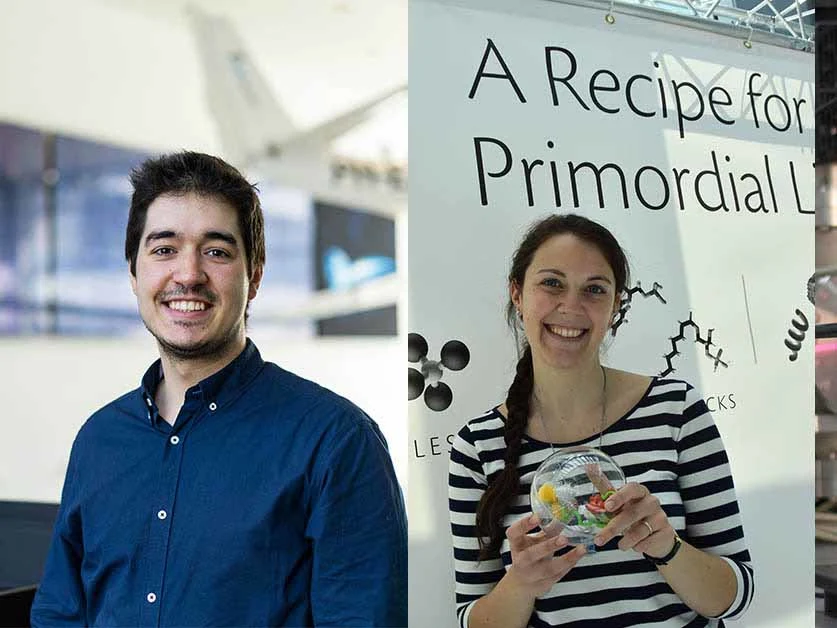
The finalists for the EuroScience European Young Researchers Award (EYRA) share their views on global science, open access and communicating with the public
Their research fields are vastly different: biomolecular science, plasma physics and aerospace engineering. But for three prizewinning postdoctoral researchers, certain issues resonate deeply.
Drs Claudia Bonfio opens in new tab/window, Scott Doyle opens in new tab/window and Roberto Merino-Martínez opens in new tab/window are finalists for the EuroScience European Young Researchers Award opens in new tab/window (EYRA) 2022, of which Elsevier is a sponsor. Since 2010, the award has been given to talented early-career researchers who have already made important contributions to their disciplines.
Now, the winner will be announced at an award ceremony at the EuroScience Open Forum (ESOF) opens in new tab/window in Leiden.
Update
Dr Claudia Bonfio won the European Young Researchers Award Jury Prize, and Dr Scott Doyle won the EYRA Popular Prize, decided by a vote of the virtual and physical audience. They were recognized with the finalists at a ceremony on July 15 at ESOF2022.
Their research fields are vastly different: biomolecular science, plasma physics and aerospace engineering. But for three prizewinning postdoctoral researchers, certain issues resonate deeply.
Drs Claudia Bonfio opens in new tab/window, Scott Doyle opens in new tab/window and Roberto Merino-Martínez opens in new tab/window are finalists for the EuroScience European Young Researchers Award opens in new tab/window (EYRA) 2022, of which Elsevier is a sponsor. Since 2010, the award has been given to talented early-career researchers who have already made important contributions to their disciplines.
Now, the winner will be announced at an award ceremony at the EuroScience Open Forum (ESOF) opens in new tab/window in Leiden.
Before that, we caught up with the finalists on a video call, where they shared their views on collaborating across borders, how science is valued around the world and communicating in a post-pandemic world.
The value of collaboration
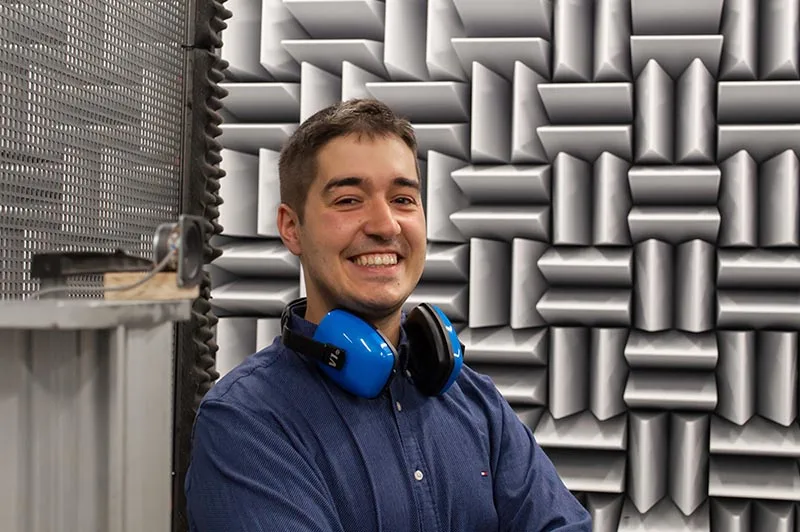
Roberto Merino-Martínez, PhD, held a postdoctoral fellowship in Aerospace Engineering and is now an Assistant Professor at Delft University of Technology (TU Delft) in the Netherlands.
The theme of ESOF2022 was “Crossing Borders, Engaged Science, Resilient Societies.” Discussing this topic, it immediately became clear how many geographic borders all three finalists have crossed during their academic and professional paths. Claudia is Italian, currently working in France. Roberto is Spanish, currently working in the Netherlands, and Scott is British, currently working in the United States.
All three have also experienced significant cross-border collaboration within their research and are quick to emphasize its value. As Roberto said:
I think collaborating is one of the things I enjoy the most with research work.
Roberto held a postdoctoral fellowship in Aerospace Engineering and is now an assistant professor at Delft University of Technology (TU Delft) opens in new tab/window in the Netherlands and an aeroacoustics consultant for Peutz bv opens in new tab/window. His research is focused on reducing noise from aircraft and wind turbines, with a view to making aviation and wind energy more socially acceptable. In a relatively short timeframe, he has achieved a significant volume of collaborations:
I think I’ve worked together with about 70 people from more than 40 institutions — although I had one paper with 25 authors, so I’m not sure if this number is cheating a little!
Finding a network of collaborators has been relatively straightforward for Roberto given that his scientific field is relatively niche. This has made for some interesting discussions for an early career researcher, he said:
My research paper with 25 authors included high-ranking researchers from NASA and aerospace research institutions across Europe. I was conscious of being sensitive with feedback if anything wasn’t going to be included! But it the end, I think everybody was happy with the result.
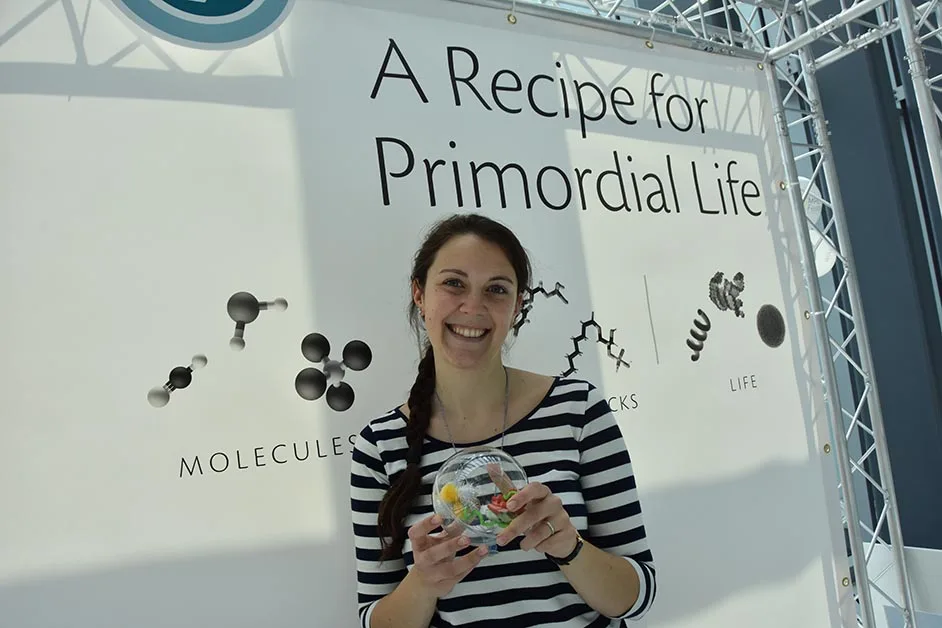
Dr Claudia Bonfio is a junior group leader at the Institut de Science et d’Ingénierie Supramoléculaires in Strasbourg, France. With a PhD in biomolecular sciences, she focuses on understanding how life started on our planet.
For Claudia, collaboration has been ingrained from early on: she completed a PhD in Biomolecular Sciences from the University of Trento opens in new tab/window, Italy, in 2017, and since October 2021 has held a Junior Group Leader position at the Institut de Science et d’Ingénierie Supramoléculaires opens in new tab/window in Strasbourg, France. Her focus is on understanding how life started on our planet, which intrinsically incorporates different angles:
I’m researching from a biochemical angle, combining both the chemical and biological perspective. So in my education and research, there is already a collaboration between fields.
Claudia views cross-disciplininary collaboration as essential for progressing knowledge:
If we want to understand how life started, we need a variety of inputs. Origin of life conferences often involve chemists, biologists, physicists, geologists, astronomers. It might be one of the most broad and interdisciplinary fields you can think of because it’s impossible to find one answer from one field to such a big question.
Scott also considers collaboration to be an imperative part of his work. He earned a PhD in Plasma Physics from the University of York opens in new tab/window in 2019 and now holds a research fellowship at the University of Michigan opens in new tab/window. His focus is on both low-temperature plasma science and fusion technology, looking to develop control strategies for plasma sources. He comments:
Between my masters and PhD, I’ve worked with team members from America, Australia, Japan and Germany. This has led to opportunities abroad, meeting researchers with different backgrounds and seeing variations in teaching. It’s interesting to be exposed to this from an early age and integrate those perspectives into your own work."Making collaborations work
With such a track record of collaborations, what do they think is key to successfully working together?
For Claudia, trust is a vital component:
My collaborations have generally come about either via conferences or personal relationships. When you know the person already, you start with a level of trust. It’s good to understand how a person will work and react.
On top of this, Scott adds the importance of something as simple as regular communication:
I was working with a team member from Australia and making time zones work was difficult. One person inevitably ended up awake at 3 in the morning. But we’d make sure we stayed in constant communication. And, practically, that we made sure everyone knew what was happening with the research.
With a PhD in Plasma Physics from the University of York, Dr Scott Doyle is now a research fellow at the University of Michigan.
Scott considers careful planning from the get-go an important part of making collaborations run smoothly:
At the beginning, you need to discuss goals and who’s trying to achieve each part of the project. It’s very easy to get distracted by something interesting along the way. … But if everyone is trying to achieve a specific goal, then you can keep a handle on it.
Roberto added to this point:
I think the most important thing is a common subject. Ideally, your skills are complementary and not completely overlapping. For example, I’m an experimentalist, but if I meet someone who’s good with computations, we can have different approaches for the same problem and learn from each other.
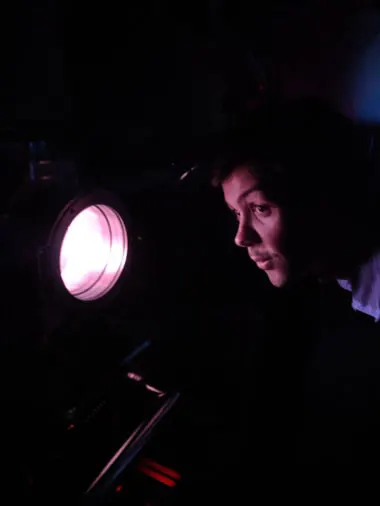
With a PhD in Plasma Physics from the University of York, Dr Scott Doyle is now a research fellow at the University of Michigan.
Science around the world
It is not only the different research perspectives that have been fascinating. All three finalists have noted the different emphasis given to science as a discipline around the world. As Scott noted:
It is surprising how different teaching is between institutions. There are varying outlooks on how, or rather why, you should be doing research. In some countries and institutions, it’s more practically minded, in others more philosophically based.
Acknowledging these differences can make for expanded research, Scott explained:
When you work in a country where the approach and questions asked around data differ, you remember that. Then when you work in another geography, you’re not stuck in one stream — you can ask different things.
Claudia agreed, noting from experience the differences in the importance placed on science:
In Italy, if you get stopped in the street to complete a survey, a PhD is often not even included in educational level options. A master’s degree is the highest you can pick. But when I arrived in the UK following my fellowship, even when my passport was checked, people were so curious about my research work. I think the value given to science in all countries is something that is not quite there yet.
Roberto expressed a similar feeling, noting the importance given to science in the Netherlands: In the Netherlands, when you do your PhD, you are considered an employee, and this really helps. The value given to science can be something as simple as how much money a country devotes to research and innovation. This can make a huge difference, as it allows for better facilities and availability of grants.
Discovering open access
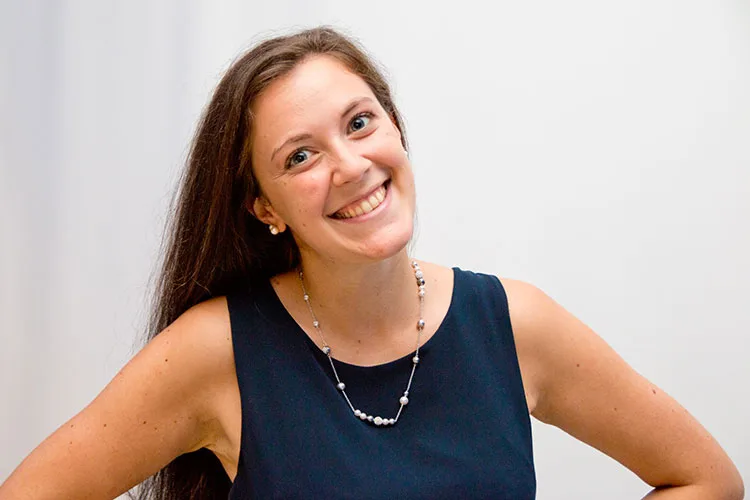
Claudia Bonfio, PhD
If you’re a researcher, the question of how your work is published and reaches a broad audience is critical. The subject turned to open access publishing and whether that is a realistic option for early-career researchers. Claudia highlighted how it wasn’t part of her earliest research discussions:
When I was a PhD student, I didn’t know about the implications of open access. I assumed publishing in a specific journal was the most important thing. Then I realized you want your work to be shared and to enrich society — that’s the whole point.
Claudia was fortunate to have open access publishing funded during her fellowship in the UK. She noted that for many young scientists, this will not be the case:
It’s challenging for young researchers to get the money to publish open access. When you apply for research grants, you can budget, but you almost never budget for open access. I think we need to find a better solution to support people, especially those coming from countries where it’s hard to get funding.
Roberto shared a similar experience, with his earliest research days directed toward journals that were not necessarily open access. He now feels a duty to ensure his work is freely available:
I’m a public employee, so morally speaking, I think the results of my work should be accessible by all. I also want other researchers to be able to use and compare. I think open data — open everything — is the way to go.
Learn about Elsevier's support for OA in the developing world
Public science in a post-pandemic era
ESOF 2022 took place as a hybrid online/in person conference. The finalists said the pandemic has had a profound impact on the interaction between science and the public, both in positive and more challenging ways. As Claudia remarked:
COVID showed how important it is that scientists learn to effectively communicate their science. I think it also showed we are not always capable of doing that!
Roberto agreed that public pushback against science is on the rise and said researchers can help quell this trend:
There seems to have been a rise in non-scientific beliefs. We saw this with people not wearing masks, for example, because they didn’t believe the science.
He took this as motivation to share outcomes with the public as much as possible:
There are frameworks that are great for researchers to share with the public, like FameLab opens in new tab/window and TEDx opens in new tab/window. To explain your research in a few minutes, you need to take the level down and make it fully understandable. I’ve learned to convey my message in a better way.
Scott pointed out how scientific fields tend to develop their own subset of language that can be hard for the non-scientific community to understand:
We have lots of terms in physics that simplify what could be a long explanation — but they don’t mean much to anyone else! Accessible language is key to communicating science, or research in any field. It’s cutting the balance between removing specialist terms and still treating the audience like intelligent adults.
On award recognition
Before we finished, the subject turned to the upcoming award. What does it mean to be a finalist and potentially to win the award? As Scott shared:
It’s great just to be recognized. I feel honored the panel considered me capable. Validation early in your career gives you motivation to keep going.
And as Roberto expressed:
It is an honor and an encouragement to have your research work acknowledged at a European level. I would like to kindly thank all the organizers for their nice work putting ESOF2022 together.
Elsevier and ESOF
Elsevier has been a partner of EuroScience for more than a decade, through roundtables, discussions and special events at the ESOF meetings.
“Debate and exchange of ideas are key for scientific advancement,” says Dr Michiel Kolman, SVP of Research Networks at Elsevier, “and we’re proud to support ESOF's mission to bridge science and society.”
As Ylann Schemm opens in new tab/window, Elsevier’s VP of Corporate Responsibility, notes: “We can work together to connect communities and build cross-disciplinary dialogue, fostering a truly inclusive and sustainable research ecosystem.”
This year, Elsevier presented a number of panels and workshops.
View the full program opens in new tab/window
Learn more about the 2022 EYRA awards opens in new tab/window
Contributor

MS